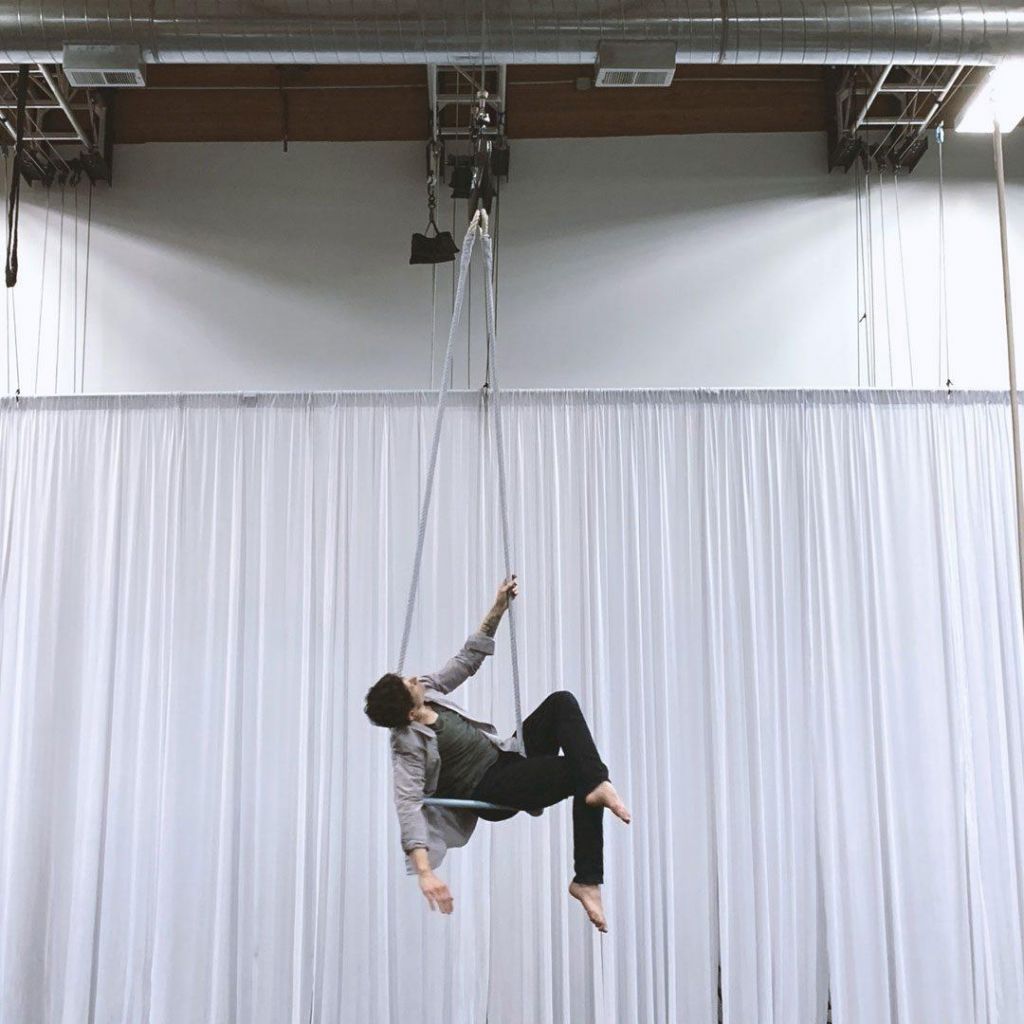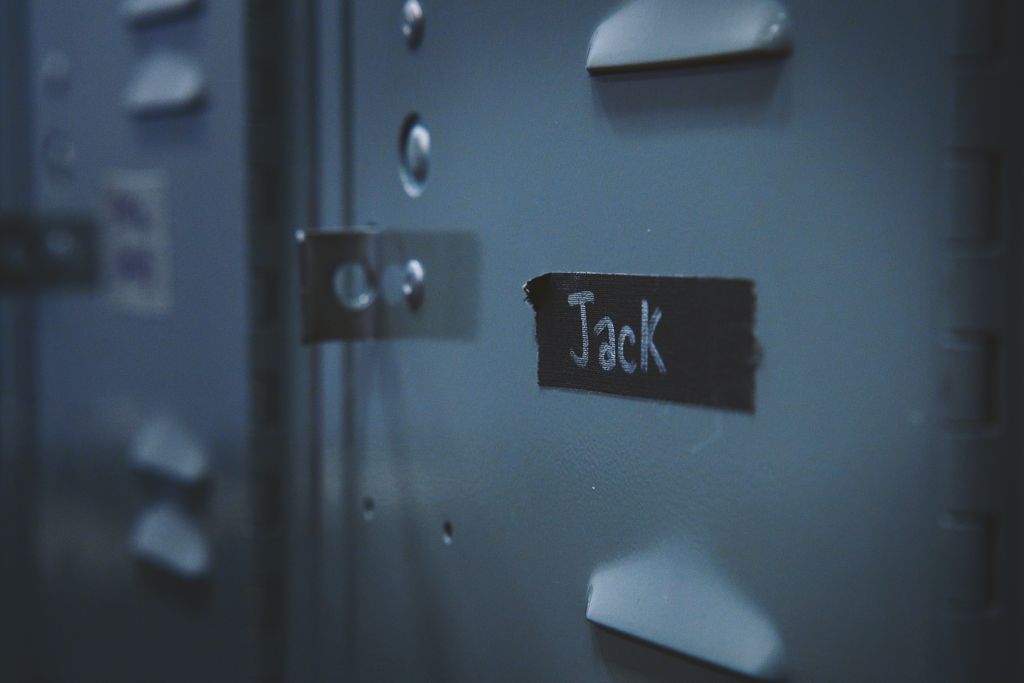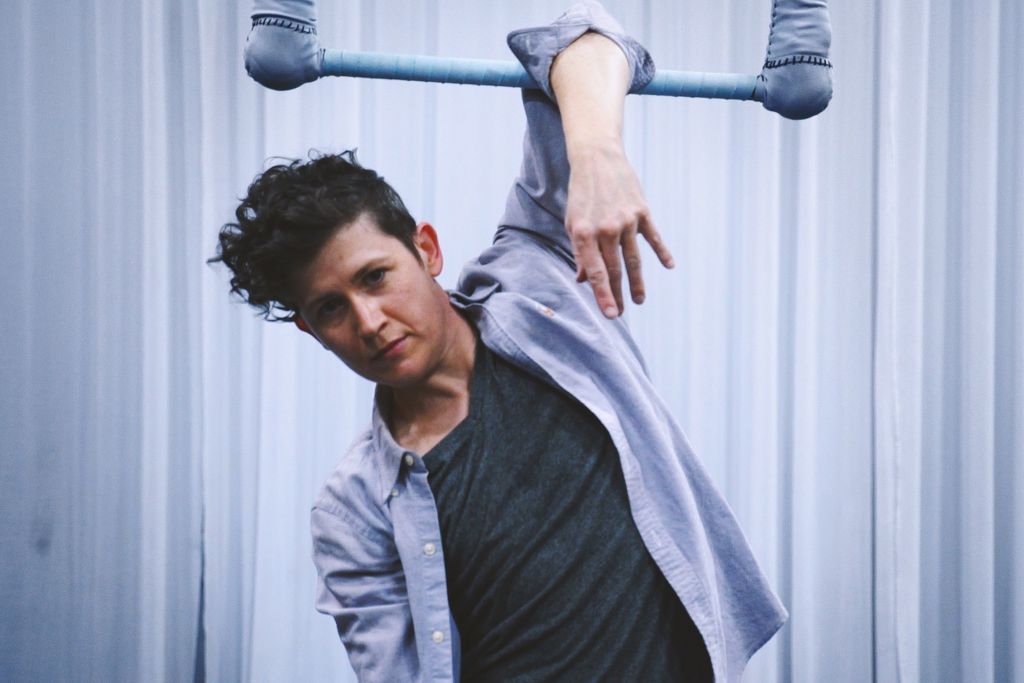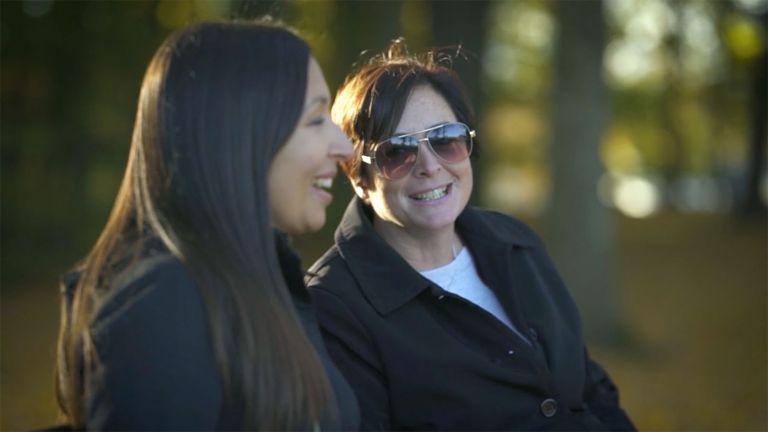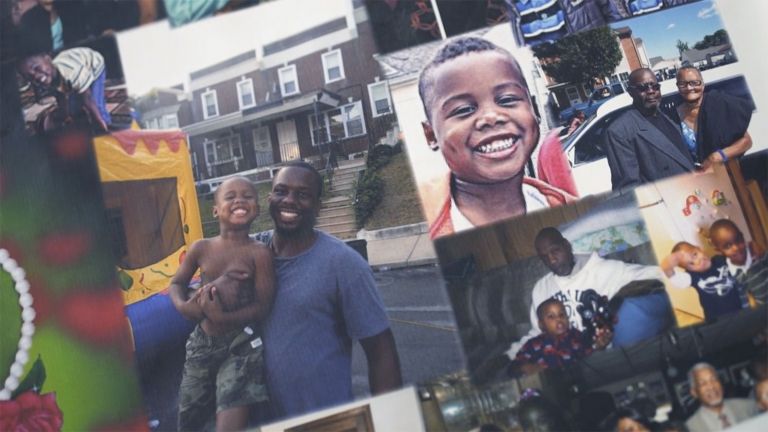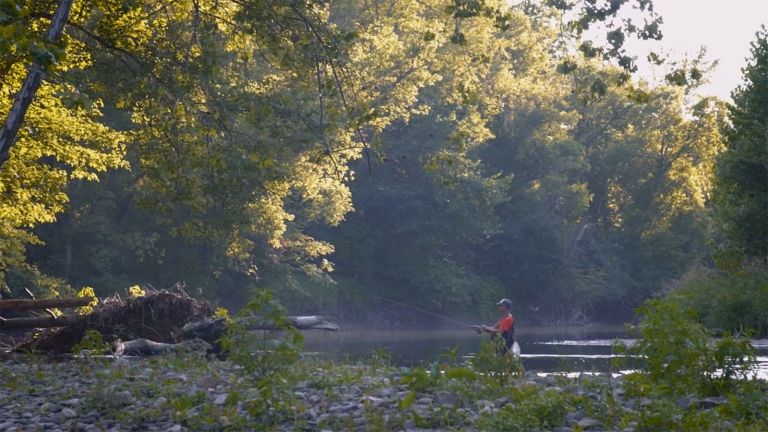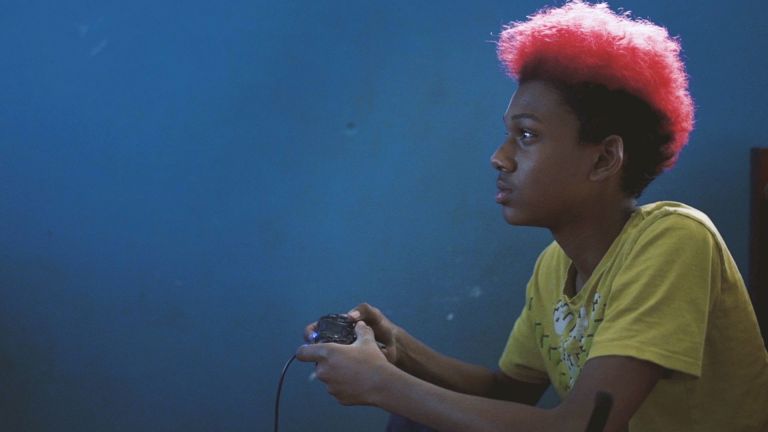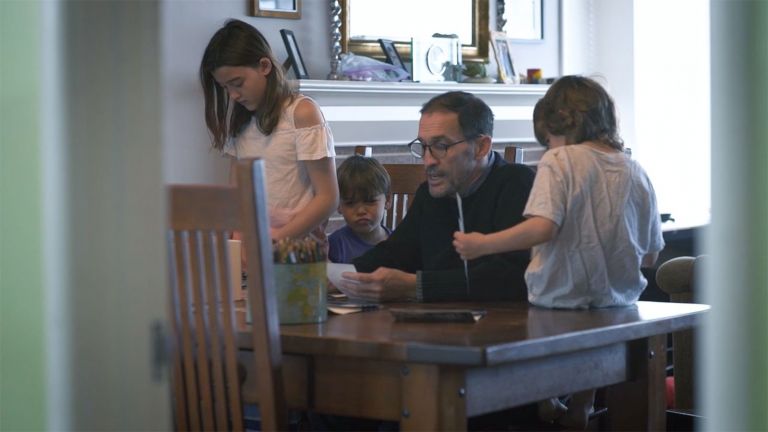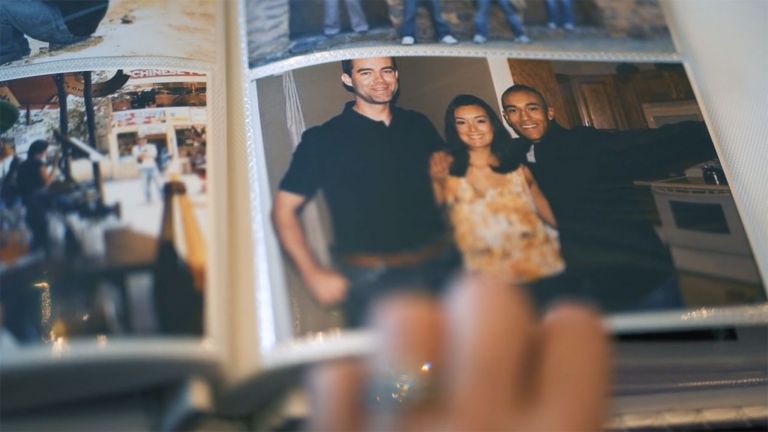Jack StockLynn
Jack’s mom, Bonnie, died in 2013. His work as a circus performer and aerial artist has provided an outlet for his grief; he created a series of circus theater shows that explore his journey with loss and grief.
My mom.
It’s a little weird but, one of the things I miss most about my mom is being annoyed at her. That just was such a part of our relationship. I miss that weirdly, I never thought I would.
I didn’t see my mom every day. I’d see her one week and she would look the same as she’s looked for months. And then the next week she would look really different somehow. I think it hit me how sick she was, when how she smelled changed.
A lot of my grief was this sort of empty rage that I couldn’t get past, that first layer of anger. Just anger at the world. Anger at what had happened. Anger that I had to go through that. Anger that I didn’t have my mom anymore. Anger that there wasn’t anything to be done about it.
It was either like, I was just so hot, mad, or nothing. Which was so strange cause I’m a fairly emotional person, and then to have that sort of just. . . emptiness . . . was bizarre.
People stopped asking me about it a couple months in. And people just started to not remember that that was a part of my existence. Even though, I would look at myself and feel like my face just was ridden with grief.
I think people that haven’t gone through that kind of loss don’t understand the way it affects everything in your brain and your body and your mind and ... everything in life. I think they’re like, “Oh, okay, well, you don’t have that person anymore, so probably you’re sad,” but they don’t know the, like, deep ... gash that no one can see that is just there.
Grief is weird. People get strange. People get angry and sad and empty. I’m sure I wasn’t terribly pleasant to be around. I was in a rough spot. No matter how much connection I wanted with someone else, I wasn’t able to be available for connection either. The kind of connection I needed was someone just sitting next to me and just sitting there, and that’s hard for a lot of people.
I think a perspective change needs to happen. It’s not, the goal of hanging out with someone in deep grief isn’t to cheer them up, it’s to help them know they’re not alone. And if, if we shift that goal, maybe friends and community will feel okay just sitting with someone and letting them hurt. But making sure they’re not alone.
It was awful. Truly I, um, fortunately was able to just take some time off of work. But because the last two months she was in hospice it pretty much just took all that, didn’t go to work. And so after she passed there was really not a reason to not go to work except that I was a wreck. So, um, I went back to work teaching and, um, just sort of. I’m just so thankful for my co-teachers cause I was just, I was like a zombie in a weird way.
The other day, um, I had a long break from work. And I work now very near to where my mom used to work. something about the sunshine and the smell and the song I was listening to, I just was ... right there again, in that desperate missing, and also knowing that that missing wasn’t gonna be resolved. But I sat with it for a little while, and then was able to breathe again and finish my walk and go get whatever I was gonna get at the store. And at the same time that I was so sad in that missing, I also had this, like, weird... preciousness about how much she would’ve enjoyed going for a walk, like, if, if she had still been working there. And to be on the sidewalk on a beautiful spring day just racked in grief and then to have that little... brightness within that just awful feeling of like, “Oh, she would’ve really liked that.”
Over time, my grief has ... shifted. It’s never gone away, and it’s ... it hasn’t shrunk. Some people say, like, “Oh, grief shrinks over time.” Like, it is still real big. But it’s not ... the first thoughts. It happens sort of at random now, and the spaces in between the depth of the grief are m- more frequent or longer, and that was sort of the change that happened over time. That that first period was just only that huge grief, and then there were, started to be little spaces where I could have other thoughts or other emotions would, would occur without forcing them Um, and then over time, I’ve gotten more of my own brain and body back from that giant grief ball, I guess. But even now, things will happen that it just comes raining down on me, or just opens up. So ... I guess my relationship over time to grief has been to accept that it’s just, uh, going to arrive sometimes for me, and that sometimes now, it is easier for me to say, “I see you, friend, but I don’t have time for you right now,” and that is the biggest shift, to have that ability to put it down. Whereas in the first stages, there’s, there’s no way to put it down.
I wish that people would just have acknowledged that it’s okay to be a wreck, and to not know what to do. And I wish... I wish that there is grief leave. Like, I went back to work and just... I mean also, what else I am going to do. But that sort of expectation that I would be back at full function now that I’m... now that’s over, um, was garbage. Like, I did my job sort of, but didn’t have my full capabilities as a human. And there was some space for that, but there was some expectation that, get on with it now. Which wasn’t possible.
I think there was some of that feeling of, sort of impatience for me to be better to the point where they saw me better before I was with that. You know, if I smile, or I’d like tell a joke or be silly again, or something. That expectation, like, “Oh, everything. Great. (phew). You’re better now. I can tell. We can blah-blah-blah, and like you’ll make ... your brain is working again.” And I’m like, “Ha ha. No, I’m still a wreck. Ha ha ha. That’s cute. I was OK for about 20 minutes, but it’s over now. Don’t worry.” That sort of, like ... Uh, for me, had to ... felt like I had to extend the charade of being better, and it was taxing. You know? I still sometimes have to pretend to be better because other people are like, “You’re fine now.”
I view my grief now, what, five and a half years out, as this sort of ... familiar ... friend is not the right word, but a sense, yes, ’cause we’ve hung out a lot. (laughs) You know? It’s like your roommate friend, or something. I don’t know. That seems not accurate, but ... At this point, I’m un- I’m comfortable being uncomfortable in grief. It sucks. It’s awful. But it’s ... familiar in a way. like, we’ve lived in the same house for a long time, but now, like, maybe we started living in the same house, grief and I, and then they like, moved to the porch, and then into the yard, and then they’re sort of next door and we see each other. But they’re, it’s, grief isn’t gone. Just ... isn’t there breathing the same air as me every moment.
To that expectation of its over now, and just get on with it. I watched even at work... um, at my moms funeral. my dad started to talk and, and... cry about how long they had been together and everything. And then, while he was talking, and instead of just let him have that moment, several people kinda of... I think they were trying to brighten the mood or something. Like it is a funeral y’all! It can be sad! We can just be sad for a while together. But kinda shot my dad down and... not rudely exactly, but not... leaving space either. Like, oh Bonnie would have blah blah blah. I mean she would probably be delighted that everyone was in the horse arena celebrating her. But also, I think she would be sad that she wasn’t there. So honoring that sadness seemed like the thing to do. And blocking it and trying to make it happy seemed, it felt so wrong to me. Just hiding... we are at a funeral... hiding from how sad it is seemed so strange to me.
I work as a circus performer. Um, I make my own circuses and I perform in other people’s circuses. I call it queer circus. So for me, that means a particular way of bringing my whole self as a human to, uh, my circus art form. So I write and produce whole shows, and that ... doing that was a huge part of getting, for me, was, for m- getting out of that depth of, out of the canyon of grief.
Out of that grief experience, um, I- I lost another family member at a, about six or seven months before my mother, um, and I started with, um, making a circus for them. So, uh, I made a cycle of three circuses sort of about that grief and grieving process, and then a fourth circus that was sort of that returning to r- reality, in a way. And th- that happened over about four years.
We went far into the future, and there, I got to express out loud in the show, wrote that I was missing my mother, and that the character I play was missing his mother. So then, we’re in the future, and then from in the future we had to go inside the body of the character, and all of the ensemble of the circus had to travel around inside the body of the character and address each system that was out of whack.
So to go to the nervous system and see that everything was firing strangely. It was trying to fire but it couldn’t connect. And to go to the stomach that was all in knots and in butterflies, and to go to the lungs that were still breathing but were having some difficulty. And through that, to sort of recalibrate. And that the friends had to come together to put back together the heart of this character who was grieving.
So at the end of that show, the heart’s all back together and everyone comes back together and they all go home to now. It seems weird to turn the death of your mother into a four circle c- four circus cycle, but that’s what I did. And that’s what I had to do. Like, there was no not making the show. It, it was, a- as my husband kindly put it, it was either make a circus or turn into an alcoholic. And I, I chose to make a circus.
It was several months that felt just that little nugget, just in like a little cocoon unable to figure out the way out. I think sometime... My mom passed in the fall, and I think that sometime as spring time came around, there was sort of, um, an opening that was small, small little... like, started to be able to breathe again in a way and then, um... yeah. As, the seasons turned to summer. More that... its not like the heaviness went away, just there were more spaces in it, and there were days that weren’t as awful.
I think a lot of what people say are like, I’m sorry. And, that sucks. And those are all nice and they’re true. Um, but they don’t... they don’t really touch the problem at all. Just them like... it’s what you’re supposed to say, so they do it which is nice. I felt more support from a parent of one of my students, of my youth students at the time. Um, she lost her mother in a similar time. And just both of us looking at each other and having like, what do we do now, kind of eye conversation. That felt as supportive as anything. More supportive.
